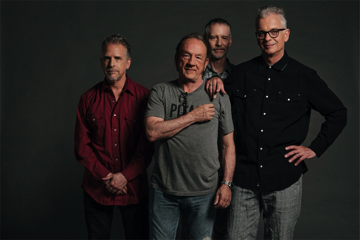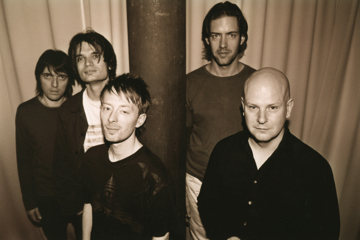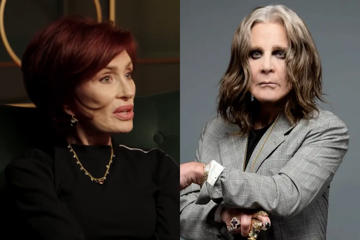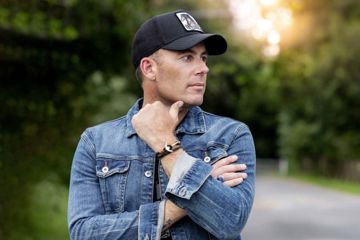Misfits Unite
It’s been a while since US rockers Redd Kross graced us with their eccentric presence, but bassist Steve McDonald assures Steve Bell that time hasn’t straightened them.

Just as some rock groups out there are one-dimensional and easy to pigeonhole, other bands are constantly morphing and thus almost impossible to define, veering erratically over the course of their career and coveting the wildly unique aspects of music rather than the readily unifying. One such act is Californian pop culture vultures Redd Kross, who formed in the city of Hawthorne (also home to the Beach Boys) in the late-'70s. The brainchild of brothers Steve and Jeff McDonald, who were playing music together before either of their voices had broken, the early incarnation of Redd Kross was a continually-evolving beast featuring a who's who of what was to become the infamous LA hardcore scene. Even from the outset, the band eschewed the mundane in favour of the esoteric – just as likely to find inspiration on a cereal box or in a toy store than from any more reliable or 'credible' source. For nearly two decades they followed their idiosyncratic muse wherever it would take them, refusing to compromise their oddball (albeit accessible) aesthetic for anybody or anything.
The band split in 1997 leaving behind six studio albums and a cult following – they're still widely lauded as an influence on bands from across the whole gamut of the musical spectrum to this day – but a few years ago were coaxed back into existence and now, courtesy of the Hoodoo Gurus' Dig It Up! extravaganza, they're returning to Australian shores for the first time since 1994 (when they also opened for the Gurus around the country).
“Yeah, the last time we were there we'd just done the Phaseshifter [1993] record and [the Gurus had] just put out Crank [1994]. And You Am I was part of that tour as well, so we played some awesome shows,” a clearly excited Steve McDonald recalls of Redd Kross' last trip down under (although he himself was here recently with his other project Off!). “[Redd Kross] went on hiatus around '97, and then a promoter in Spain managed to convince us to emerge from the wilderness. In late 2006 we went and did a festival there and since then we've really only done a handful of shows – a couple of tours in Spain and in the States we've played maybe about a dozen shows? I've been really busy producing and keeping involved in the music community in general, but it's really only been the last five years or so that Redd Kross has been that active. Just recently, though, we finished the new album, which will be our first album in 15 years. I'm really excited about it, so it seems like the band's going to be a bit more of an active concern.”
According to McDonald, the band's massive sound evolution – which saw them move smoothly from their first gig opening for Black Flag into the world of power pop and beyond – was due to a combination of shifting personnel and the natural changes that a band undergoes as it strives to unearth its own identity. “I think that maybe some of the qualities of the sound come down to the [different] players, but I think at the heart of it would be my brother's interest in different things and me supporting that and going along for the ride,” he reflects. “He's my older brother so obviously he had a huge influence on me with so many different things. When you talk about Black Flag and the punk rock era there was an evolution there. When we first got into punk rock, things changed a lot in that environment and we were hanging out with Black Flag and it was our own little island of misfit toys, long before they were a popular band (or at least a year-and-a-half – and at the age of 11 that's a long time).
Don't miss a beat with our FREE daily newsletter
“But then the hardcore scene really took over and it was kind of violence-based on a lot of levels – like a contact sport way of appreciating the music – and we didn't really identify with that and found ourselves becoming less enthusiasts of the current scene and becoming more like historians. We started going to charity shops and digging up ancient Seeds records and Arthur Lee records, because they were huge local hits in the '60s so you'd find them for 25 cents. It was like hearing The Germs for the first time all over again, except that it was music from 15 years or so earlier. That definitely led us in another direction – discovering punk in a different way.
“Then there was just a natural progression. You think about the natural evolution of artists and look at The Beatles – not to compare ourselves to them! – but you look at the evolution from I Want To Hold Your Hand to The White Album and everything in between: that took place over seven or eight years! It's a healthy thing to evolve. We were always shy about being a part of something; you could never really say that we were a grunge band or a hardcore band, so we never really benefitted from any wave that you could market as such. We're very much an underground band – known quite well in some circles because of that – and it's cool that we still get to do it.”
Both of the McDonald brothers were enamoured with pop culture back in the day and this inevitably seeped into the songs and music of Redd Kross. “We were raised by our parents and then our third parent the television, so I think it was unavoidable,” McDonald laughs of their dual obsession. “And then we had a lot of aunts and uncles – my dad's the oldest of a big brood of kids – so his younger siblings were more like older brothers and sisters to us. My aunt took my brother to see The Beatles when he was three-years-old at San Diego Stadium – I think he slept through most of it, but nonetheless it had a huge impact on him. So there were those kind of moments in popular culture that had a huge impact musically-speaking and then just watching weird television and embracing the psychedelia. Then not too long after adolescence looking back and thinking about how that strange TV movie affected our development – 'We could write a song about that!'”
Which of course is a perfect parallel to the Hoodoo Gurus themselves, who in their own nascent years were also peculiarly smitten with the stranger side of what pop culture had to offer. “Yeah definitely, I've talked to Dave [Faulkner] about that,” McDonald chuckles. “I think it's incredible – especially in the pre-internet era – to have that kind of connection with someone who grew up 9,000 miles away. It's neat. It's really neat that music can make you have that connection with those people – I always think of that B-52s song [sings], 'There's others like you!' or the Ramones song, 'Gabba gabba, we accept you, one of us!' I love when you find the other misfits on the island, it's great.”







